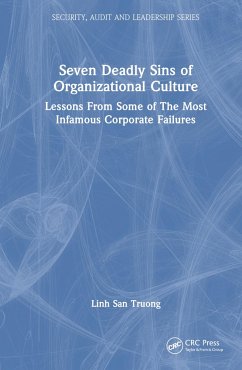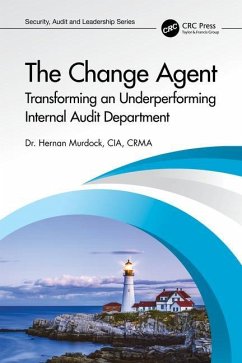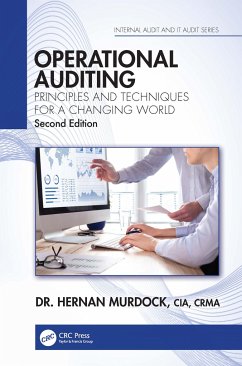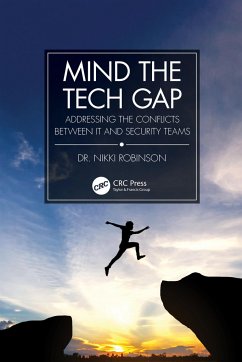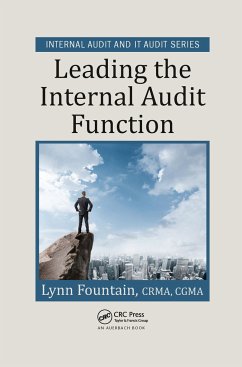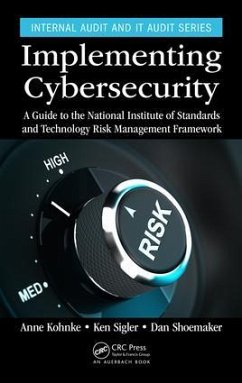
Seven Deadly Sins of Organizational Culture
Lessons From Some of The Most Infamous Corporate Failures
Versandkostenfrei!
Versandfertig in 6-10 Tagen
51,99 €
inkl. MwSt.
Weitere Ausgaben:

PAYBACK Punkte
26 °P sammeln!
This book is about the primary symptoms present in a dysfunctional culture that could have devastating outcomes for any organization. The book outlines each of the seven sins in each chapter.Each of the first seven chapters (Chapters 1-7) starts with a famous quote related to each of the sins and then immediately recounts stories ripped from the headlines describing well-known corporate failures but with a personal touch from former employees who experienced those stories from inside the company. (The sources for these stories are all cited in their Bibliographies).The seven sins of organizati...
This book is about the primary symptoms present in a dysfunctional culture that could have devastating outcomes for any organization. The book outlines each of the seven sins in each chapter.
Each of the first seven chapters (Chapters 1-7) starts with a famous quote related to each of the sins and then immediately recounts stories ripped from the headlines describing well-known corporate failures but with a personal touch from former employees who experienced those stories from inside the company. (The sources for these stories are all cited in their Bibliographies).
The seven sins of organizational culture are linked with seven different corporate scandals that serve as a "lesson learned" as well as seven stories of organizations that have been successful with each respective organizational attribute as follows:
Flawed Mission and Misaligned Values uses WorldCom as the lesson learned and Patagonia as the success caseFlawed Incentives uses Wells Fargo as the lesson learned and Bridgeport Financial as the success caseLack of Accountability uses HSBC as the lesson learned and McDonald's as the success caseIneffective Talent Management uses Enron as the lesson learned and Southwest Airlines as the success caseLack of Transparency uses Theranos as the lesson learned and Zappos as the success caseIneffective Risk Management uses the 2008 mortgage industry collapse as the lesson learned and Michael Burry as the success caseIneffective Leadership summarizes all of the foregoing sins as failures of Leadership
In each chapter and for each organizational sin, the author offers seven attributes of a healthy culture to counter the cultural dysfunction. The seven healthy attributes for each of the seven sins are all original content.
In Chapter 8, the author offers an approach for assessing an organization's culture by providing seven ways to measure the different drivers of organizational culture. The ideas for how to measure corporate culture is original content, with some references to existing frameworks (all cited in the Bibliography),
Finally, in Chapter 9, the author offers a step-by-step outline for transforming the culture. The chapter starts with a story about how Korean Air suffered multiple crashes due to their corporate culture but were able to successfully transform their culture. (The source for the Korean Air story is cited in the Bibliography).
There are seven appendices, most of which are by the author except for the maturity of risk management, which references an OECD (government entity) risk management maturity framework.
Each of the first seven chapters (Chapters 1-7) starts with a famous quote related to each of the sins and then immediately recounts stories ripped from the headlines describing well-known corporate failures but with a personal touch from former employees who experienced those stories from inside the company. (The sources for these stories are all cited in their Bibliographies).
The seven sins of organizational culture are linked with seven different corporate scandals that serve as a "lesson learned" as well as seven stories of organizations that have been successful with each respective organizational attribute as follows:
Flawed Mission and Misaligned Values uses WorldCom as the lesson learned and Patagonia as the success caseFlawed Incentives uses Wells Fargo as the lesson learned and Bridgeport Financial as the success caseLack of Accountability uses HSBC as the lesson learned and McDonald's as the success caseIneffective Talent Management uses Enron as the lesson learned and Southwest Airlines as the success caseLack of Transparency uses Theranos as the lesson learned and Zappos as the success caseIneffective Risk Management uses the 2008 mortgage industry collapse as the lesson learned and Michael Burry as the success caseIneffective Leadership summarizes all of the foregoing sins as failures of Leadership
In each chapter and for each organizational sin, the author offers seven attributes of a healthy culture to counter the cultural dysfunction. The seven healthy attributes for each of the seven sins are all original content.
In Chapter 8, the author offers an approach for assessing an organization's culture by providing seven ways to measure the different drivers of organizational culture. The ideas for how to measure corporate culture is original content, with some references to existing frameworks (all cited in the Bibliography),
Finally, in Chapter 9, the author offers a step-by-step outline for transforming the culture. The chapter starts with a story about how Korean Air suffered multiple crashes due to their corporate culture but were able to successfully transform their culture. (The source for the Korean Air story is cited in the Bibliography).
There are seven appendices, most of which are by the author except for the maturity of risk management, which references an OECD (government entity) risk management maturity framework.





